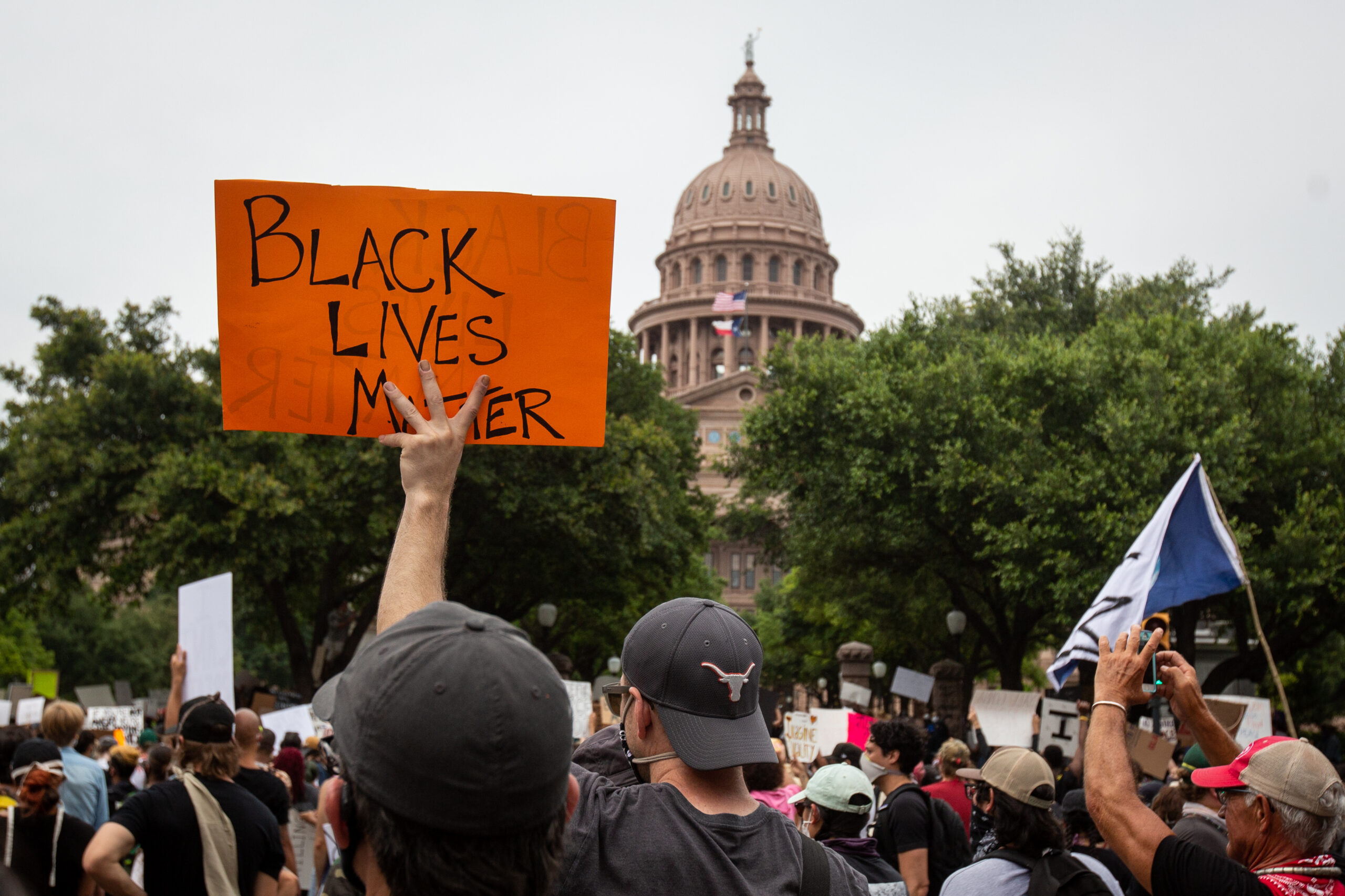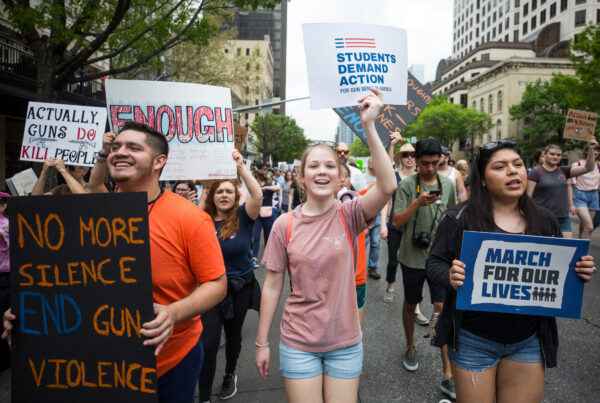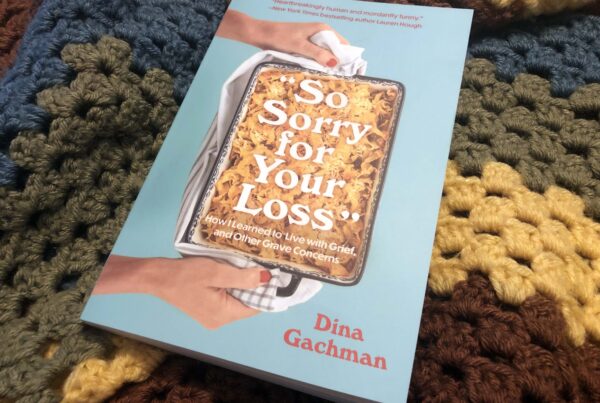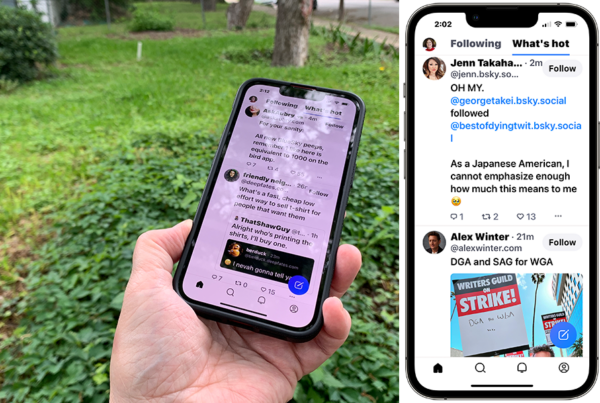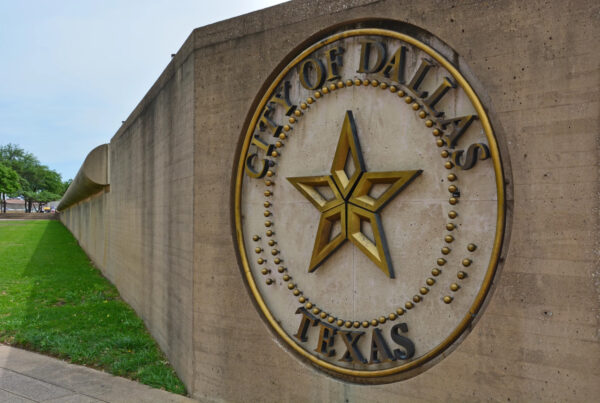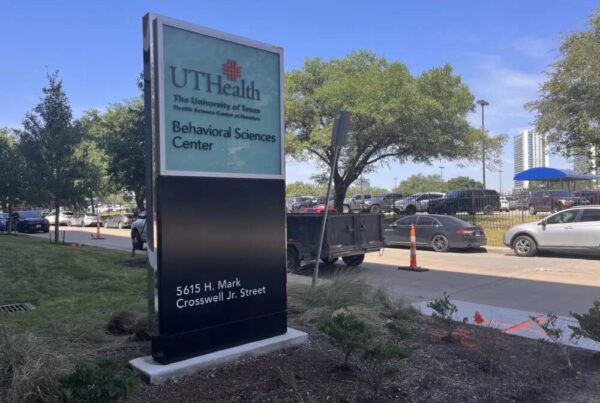In response to the 2020 murder of George Floyd and the broader issue of police brutality, people around the Lone Star State headed out to protest.
A few years since those protests, however, there’s been a backlash – at least according to political writer Jeremy Wallace.
In a new story for the Houston Chronicle, he argues there’s been a “crackdown” on protesters across the state. He joined the Texas Standard to explain. Listen above or follow the transcript below.
This transcript has been edited lightly for clarity:
Texas Standard: You say there’s a crackdown on protesters across the state. What are you seeing?
Jeremy Wallace: Well, initially, after George Floyd’s death, we saw the Legislature pass laws to ban chokeholds on police from being used. And so you could feel the reforms starting there. But since then, the protesters have become the target of the Republican-led Legislature. They’re now passing more and more laws to go after things they saw that happen during the protests that they didn’t like. They have started kind of working on legislation that if officers use non-lethal force on a crowd, they won’t be held liable if there are injuries.
You point out laws around protesters blocking roadways and using laser pointers to obstruct police. Would most Texans consider these to be unreasonable changes to laws surrounding protests or what is your take on that?
Well, there’s certainly a degree of reasonableness in all of it. Of course, if there’s an emergency vehicle trying to get to the hospital and a protester blocking the roadway, you can see that nobody wants that to happen. I don’t care who’s involved, whatever way. So clearly, there’s a need to make sure protesters aren’t overstepping the line. But I think what made it a little bit different in Texas is how much they’ve amped up the penalties for all of these types of things. You know, this isn’t just going to be a misdemeanor. They’re going to charge you with a felony. And so they’ve really elevated the risk to the protesters to know exactly what they’re doing and where they’re standing. And I think that’s kind of what’s a little bit different. So all those people who took to the streets thought they were marching in the name of George Floyd, and protesting what was happening. Those protests have kind of been used as the vehicle for the Legislature to kind of make it not happen again.
Jeremy, have you talked with state legislators about what’s led to these attempts to change the laws?
Of course I have. You know, in one case, you know, the Republicans are certainly saying, “look, you know, we can’t have this stuff getting out of control.” And so even if some of the things didn’t happen in the state of Texas or was isolated, they want to make sure there’s a law for all of it. But as you talk to Democrats there, that’s where the frustration kind of is. I spoke a lot with state senator Borris Miles for this story, a Democrat from Houston. And he said the frustration of seeing what they thought was maybe a potential to reform police and the criminal justice system has just turned into something that is almost being used against the people who are looking for that stuff.
I know you talked with some people affiliated with Black Lives Matter organizations around the state. What have you been hearing from them?
Well, there’s a lot of frustration from them and they see what’s happened and as I spoke with the Black Lives Matter co-founders in Houston, that’s one of the things that really came up. They knew it was going to be a tough slog. You know, they knew that they were facing a Republican Legislature that would potentially have this backlash. But I think they were even caught by surprise. You’ll see one quote in the story where, you know, Ashton P. Woods, one of the co-founders, says “I think we are in legislative hell.”
But at the same time, he’s vowing and I think a lot of the other groups have told me the same thing, that they’re not giving up. They’re going to keep going out there. They’re still going to keep protesting when they see injustice out there in all these cases we see around the nation and even in Texas. And so I don’t think they’re going away even though the Legislature is kind of turning on them now.


